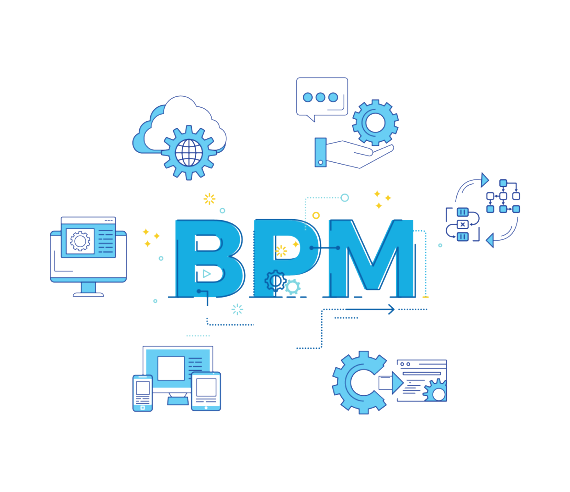BPM | Business Process Management
Business process management (BPM) is the practice of modeling, analyzing, and optimizing end-to-end business processes to help meet your strategic business goals, such as the improvement of your customer experience framework.
The steps of business process management (BPM) commonly include six phases: plan, design, model, implement, monitor, and optimize. These steps provide a structured, cyclical approach for business process improvement, including streamlining manual processes through workflow automation.

When Should Organizations Implement Business Process Management?
- Dynamic processes that require regulatory compliance changes, such as a change in customer information management following changes in finance or privacy laws.
- Complex business processes that require orchestration and coordination across multiple business units, divisions, functional departments, or workgroups.
- Measurable mission-critical processes that directly improve a crucial performance metric.
- Business processes that require one or more legacy applications for their completion.
- Business processes with exceptions that are handled manually and/or require quick turnarounds.
BPM Services We Provide

Design
Business analysts review current business rules, interview the various stakeholders, and discuss desired outcomes with management.

Model
Modeling refers to identifying, defining, and making a representation of new processes to support the current business rules for various stakeholders.

Excute
Execute the business process by testing it live with a small group of users first and then open it up to all users. In the case of automated workflows, artificially throttle the process to minimize errors.

Monitor
Establish Key Performance Indicators (KPIs) and track metrics against them using reports or dashboards. It’s essential to focus on the macro or micro indicators – an entire process vs. process segments.

Optimize
With an effective reporting system in place, an organization can effectively steer operations toward optimization or process improvement. Business Process Optimization (BPO) is the redesign of the business processes to streamline and improve process efficiency and strengthen the alignment of individual business processes with a comprehensive strategy.
What are the Benefits of Implementing Business Process Management?
Business Process Management helps organizations move toward total digital transformation and help them realize bigger organizational goals. Here are some of the key benefits of using BPM in your business:
Business Process Management?
Here are some examples of business processes where implementing BPM will result in a high return on investment.
